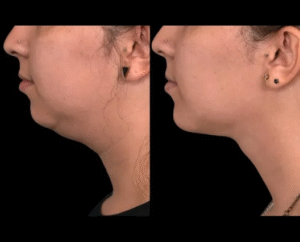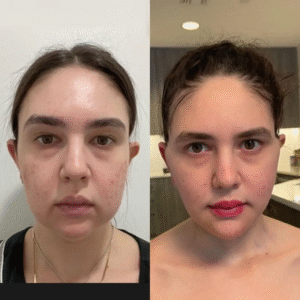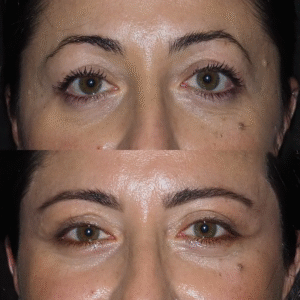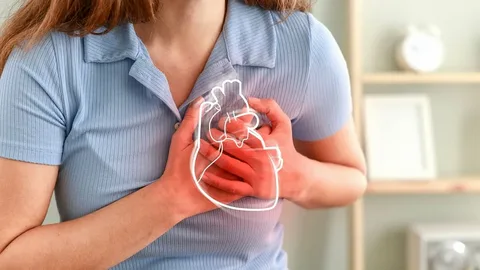
Am I Having a Heart Attack Female Quiz
Am I Having a Heart Attack Female Quiz ? Heart disease is often thought of as a “man’s condition,” but in reality, it is the leading cause of death for women worldwide. One of the most dangerous aspects is that women’s heart attack symptoms can look very different from men’s, making it harder to recognize the warning signs in time.
To help women understand their risks, this blog presents a self-assessment quiz, explains common and unique female heart attack symptoms, and highlights when to seek emergency medical care.
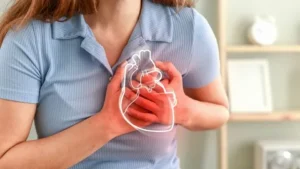
Why Heart Attack Symptoms in Women Are Different
Am I Having a Heart Attack Female Quiz ? In men, a heart attack is often associated with the “classic” crushing chest pain. While women can also experience chest discomfort, they are more likely to have subtle, less typical symptoms such as nausea, fatigue, or shortness of breath.
This difference means that many women dismiss early signs as stress, indigestion, or fatigue—losing precious time before treatment. A delay of even minutes can increase heart damage and reduce survival chances.
The “Am I Having a Heart Attack?” Female Quiz
This quiz is not a diagnostic tool but can help you recognize potential warning signs. If you answer “yes” to several of these questions, it’s crucial to seek medical attention immediately.
1. Are you experiencing unusual chest pain, pressure, or tightness?
-
Women may feel pressure rather than sharp pain. It can feel like heaviness, squeezing, or fullness in the center of the chest.
2. Do you feel pain or discomfort in areas other than your chest?
-
Unlike men, women often feel pain in the neck, jaw, shoulder, upper back, or stomach.
3. Are you unusually short of breath even without exertion?
-
Breathlessness that comes suddenly or with minimal activity is a key warning sign.
4. Are you experiencing nausea, indigestion, or vomiting?
-
These symptoms are sometimes mistaken for food poisoning or acid reflux, but they can signal a heart attack in women.
5. Do you feel unusual fatigue that doesn’t improve with rest?
-
Many women report extreme exhaustion days or even weeks before a heart attack.
6. Are you having dizziness or lightheadedness?
-
Feeling faint, woozy, or unstable can indicate reduced blood flow to the brain due to a heart issue.
7. Do you have cold sweats without physical activity?
-
Sudden sweating unrelated to exercise can signal a cardiac emergency.
8. Do you have a history of risk factors such as high blood pressure, diabetes, obesity, smoking, or family history of heart disease?
-
These significantly increase your chances of a heart attack.
How to Score Your Results
-
Yes to 1–2 questions: Stay alert. Monitor symptoms closely and consider scheduling a checkup with your doctor.
-
Yes to 3–4 questions: Your risk may be moderate. Seek medical advice promptly.
-
Yes to 5 or more questions: This may indicate a serious emergency. Call 911 or your local emergency number immediately.
Remember: Do not self-diagnose. Only a healthcare professional can confirm whether symptoms are due to a heart attack or another condition.
Early Warning Signs in Women
Some women experience symptoms for hours, days, or even weeks before the heart attack occurs. These early warning signs include:
-
Persistent fatigue
-
Sleep disturbances
-
Mild chest discomfort that comes and goes
-
Shortness of breath during routine activities
-
Anxiety or a sense of impending doom
These symptoms are often ignored, but they are red flags for potential heart problems.
When to Call Emergency Services
If you suspect a heart attack, do not delay. Call emergency services immediately. While waiting for help:
-
Sit down and stay calm.
-
If available, chew an aspirin (unless allergic).
-
Avoid driving yourself to the hospital; call an ambulance.
Acting fast can mean the difference between survival and severe, long-term damage.
How Heart Attacks Are Diagnosed
Once at the hospital, doctors may use:
-
Electrocardiogram (ECG/EKG): Measures electrical activity of the heart.
-
Blood tests: Detect heart damage enzymes.
-
Imaging tests: X-rays or echocardiograms to assess heart function.
Prompt diagnosis ensures timely treatments such as clot-busting medications, angioplasty, or surgery.
Risk Factors Specific to Women
In addition to general heart disease risks, some factors uniquely affect women:
-
Hormonal changes – Menopause reduces estrogen, increasing heart risk.
-
Pregnancy complications – Preeclampsia and gestational diabetes raise long-term risks.
-
Autoimmune diseases – Conditions like lupus or rheumatoid arthritis are more common in women and increase cardiovascular risk.
-
Emotional stress and depression – These factors have stronger links to heart disease in women than in men.
Preventing Heart Attacks in Women
The best defense against heart disease is prevention. Lifestyle changes can lower your risk significantly:
-
Healthy diet – Focus on fruits, vegetables, whole grains, and lean proteins.
-
Regular exercise – Aim for 150 minutes of moderate activity per week.
-
Weight management – Maintain a healthy BMI to reduce strain on the heart.
-
Quit smoking – Smoking dramatically increases heart attack risk.
-
Manage stress – Yoga, meditation, or relaxation techniques can protect heart health.
-
Regular checkups – Monitor blood pressure, cholesterol, and blood sugar levels.
Key Differences: Female vs. Male Heart Attack Symptoms
| Symptom | Men | Women |
|---|---|---|
| Chest pain | Common, severe, crushing | Often mild or absent; may feel like pressure |
| Pain location | Left arm, chest | Jaw, neck, back, shoulders, upper stomach |
| Fatigue | Less common | Very common, may precede attack |
| Nausea/vomiting | Less common | More common in women |
| Shortness of breath | Common | Common, sometimes the only symptom |
This comparison shows why it’s so important for women to recognize non-traditional signs.
Final Thoughts
Am I Having a Heart Attack Female Quiz ? A heart attack can happen to anyone, but for women, symptoms often look very different from what we traditionally expect. The “Am I Having a Heart Attack? Female Quiz” is designed to help raise awareness and encourage women to take their symptoms seriously.
If you experience unusual chest discomfort, unexplained fatigue, nausea, or pain in areas like the jaw or back, don’t ignore them—call emergency services immediately. Early intervention saves lives.
Your heart is your body’s strongest muscle, but it needs your care and attention. By knowing the signs, understanding your risks, and acting quickly, you can protect yourself and empower other women to do the same.
